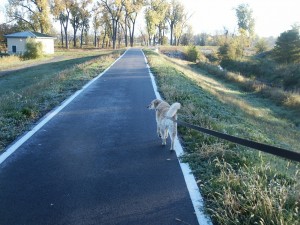 Do you tell yourself you need a couple of days when your calendar is free from distractions before you can sit down and start to write? Then when the weekend arrives you sleep late, catch up on correspondence, watch a movie, and maybe make time to stare at a blank screen. In a block of eight hours without any other commitments, you’re lucky if you spend an hour or two actually writing.
Do you tell yourself you need a couple of days when your calendar is free from distractions before you can sit down and start to write? Then when the weekend arrives you sleep late, catch up on correspondence, watch a movie, and maybe make time to stare at a blank screen. In a block of eight hours without any other commitments, you’re lucky if you spend an hour or two actually writing.
Are you convinced that next chapter will get written while you are away at a writer’s retreat? When you get there do you enjoy the camaraderie of kindred spirits indulging in literary conversations, visiting the tourist attractions, eating meals together, and checking out a nearby bookstore or art gallery? In a block of five free days, you might actually write a total of 10 hours.
 Have you looked at your watch and sighed with disappointment that there isn’t enough time to write before you have to a) go pick up the kids from school b) meet someone for lunch or c) rush off to your next appointment? Instead you Tweet #amwriting when you’re not, take a photo of your desk and post to Instagram, and check out what other people are reading on Facebook.
Have you looked at your watch and sighed with disappointment that there isn’t enough time to write before you have to a) go pick up the kids from school b) meet someone for lunch or c) rush off to your next appointment? Instead you Tweet #amwriting when you’re not, take a photo of your desk and post to Instagram, and check out what other people are reading on Facebook.
Do the dishes have to be done and everyone else asleep in the house before you can start to work on your manuscript? Exhaustion and all the day residue defeat your best intentions to write. Have you joined a Facebook group with other writers where you console each other about all the obstacles which prevent you from making progress? Misery loves company.
The illusion that you need big blocks of unstructured time to write a book-length manuscript is exactly that: an illusion. Many authors feel as though they don’t know where they are going while they are writing. Too many make the mistake of waiting for inspiration, insight, clarity, or the mood to strike them. Do you know any marathon runners who wait until they are in the mood to run? Or scientists who wait to collect data until they have an insight? Do you wait to meditate until you have some clarity? No, you meditate to gain clarity. Collect data until it provides insight. Run until the pain stops. Writing is not a recreational activity if you intend to publish.
“Writing is like driving at night in the fog. You can only see as far as your headlights, but you can make the whole trip that way.” – E. L. Doctorow
Most of the authors I work with have full-time jobs, multiple family obligations, volunteer in their communities, and still make time to write. Every day.
 Some write on notepads in the van while they wait for their kids to finish soccer practice. Others spend the time on the train while they commute to work with a notebook and pen writing longhand. While they sit in the waiting room at the doctor’s office before the nurse calls their name and in the exam room for the 15 minutes to half hour before the doctor comes in. Lunch hour escapes to a cubicle in the nearby library. They grab time when they have it.
Some write on notepads in the van while they wait for their kids to finish soccer practice. Others spend the time on the train while they commute to work with a notebook and pen writing longhand. While they sit in the waiting room at the doctor’s office before the nurse calls their name and in the exam room for the 15 minutes to half hour before the doctor comes in. Lunch hour escapes to a cubicle in the nearby library. They grab time when they have it.
And they don’t write at the keyboard of their computer. They write longhand.
How many times have you sat down at your computer to write and spent an hour on the same paragraph? Ever notice how many more times you use the backspace key compared to any other on your keyboard? Trying to write new draft material while editing is an exercise in futility.
Writing sprints are the best way to generate new draft material. When you do have a couple of hours to work uninterrupted spend it on data entry and editing. Take your handwritten notes and type them up and revise along the way. If you separate writing from editing, you’ll make much faster progress on the writing.
Time poverty is partly a matter of perception and partly a matter of distribution. And no matter how much time you have, it will never be enough. So take advantage of every minute you do have.
 The perception problem is an easy one to fix. You only need 15 minutes to generate 500 words. When I lead workshops I provide participants with a prompt, then ask them to write for 15 minutes. They easily fill several pages with longhand. They shut off the internal censor. The floodgates open and the words spill out onto the paper. A short sprint is easy. Marathon writing sessions rarely yield marathon word counts. Ignore the Stephen King rule of 1,000 words a day. Writing is his day job and you can accomplish just as much in one hour as he does in an entire day.
The perception problem is an easy one to fix. You only need 15 minutes to generate 500 words. When I lead workshops I provide participants with a prompt, then ask them to write for 15 minutes. They easily fill several pages with longhand. They shut off the internal censor. The floodgates open and the words spill out onto the paper. A short sprint is easy. Marathon writing sessions rarely yield marathon word counts. Ignore the Stephen King rule of 1,000 words a day. Writing is his day job and you can accomplish just as much in one hour as he does in an entire day.
 Time poverty is largely a matter of distribution. If all your writing time is put in one large chunk, much of that time is wasted. After 15 minutes you need to get up and get a cup of coffee. Then the phone rings. The dog wants to go out for a walk. You check your email. Lunch time. Then you read to be inspired. You go back and edit what you little you wrote in the morning and need a nap. Maybe you knock out another paragraph or two. But you accomplish less in one full day than if you had taken only 15 minutes every day.
Time poverty is largely a matter of distribution. If all your writing time is put in one large chunk, much of that time is wasted. After 15 minutes you need to get up and get a cup of coffee. Then the phone rings. The dog wants to go out for a walk. You check your email. Lunch time. Then you read to be inspired. You go back and edit what you little you wrote in the morning and need a nap. Maybe you knock out another paragraph or two. But you accomplish less in one full day than if you had taken only 15 minutes every day.
If you really want to write, you’ll make the time to do it.
 I recommend you set your alarm for 30 minutes earlier than usual. Make writing the first thing you do every day. You are at your freshest. Your focus will be the greatest. Set a timer for 15 minutes. And write.
I recommend you set your alarm for 30 minutes earlier than usual. Make writing the first thing you do every day. You are at your freshest. Your focus will be the greatest. Set a timer for 15 minutes. And write.
What if you can’t? What if nothing comes? Well, sometimes that happens. You’ve only wasted 15 minutes and not an entire weekend. Take the other 15 minutes to get something else done that you can check off your list for later this week. Get up the next morning and try it again.
What if after 15 minutes you are on a roll? Stay with the “flow” experience and set the timer for another 15 minutes. Keep sprinting. Stop when the buzzer goes off and jot down a few notes about what you are going to write next. You’ll be thinking all day about what you are going to write next when you sit down tomorrow morning and start again.
“I learned never to empty the well of my writing, but always to stop when there was still something there in the deep part of the well, and let it refill at night from the springs that fed it” – Ernest Hemingway

Advice like that can be the prompt you have been waiting for. Go for it…I’m going to!
Go for it! Only you can tell your own story, Rita. And you’ve got plenty of stories to share.
Do other authors write in their heads? I find myself composing texts in the car, in bed when I wake up, while taking a walk, and when I get a chance I write it down.
Yes. Absolutely! The trick is to get them into words and on the paper. Some of my best ideas come to me while on solo road trips and keep a notepad next to me where I scribble them down. Sometimes I can’t decipher my own cryptic notes, though. If I don’t write the ideas down, they often get lost.